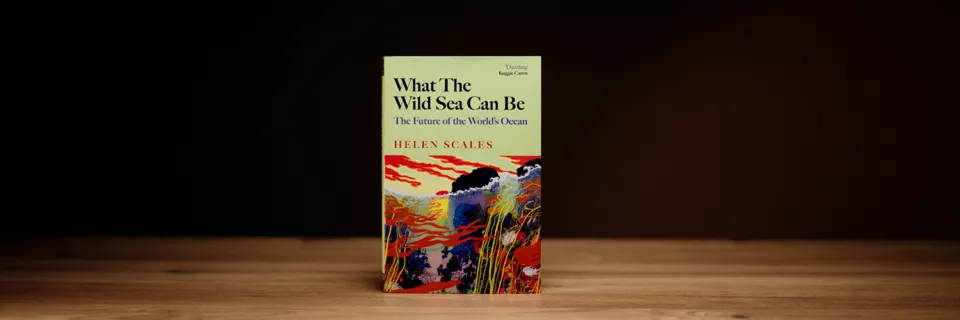
Jonathan Blitzer Longlist Interview
9 October 2024
How does it feel to be longlisted?
It’s taking time to sink in. I keep pinching myself, especially when I see my book alongside all those distinguished longlisted authors.
How did you conduct your research?
I reflected on twenty years of my own studies and exploration around the ocean and I went on a couple of research trips to investigate specific stories, carefully planning them so I didn’t take any flights. I combined that with a deep dive into what the latest studies are saying about how sea life is now changing and what can be done to push for a better future for the ocean.
How did you find balancing the tones of urgency and hope in your writing to motivate readers towards ocean conservation?
Various thinkers have talked about combining pessimism of the intellect with optimism of the will, in relation to different crises facing humanity. In other words, we need to understand just how bad the situation is right now and how we got here, while at the same time committing to the possibility of transforming that reality and of there being a better unfolding of the future.
This idea applies to the biodiversity crisis in the ocean, and it helped me find balance in the book. My aim is to show how it’s possible – necessary even – to hold onto a mix of hope and joy, anger and fears. Those feelings are not mutually exclusive and together they can be potent force to act.
People increasingly are seeking out nature and the ocean as a place of solace and escape, but then they’re horrified at the damage they see taking place or hear about in the news. There’s comfort to be had in squaring up to those problems and knowing they can be undone, all the while allowing ourselves to keep feeling awe and wonder in ocean life.
In the book you explore how prehistoric ocean ecology holds lessons for the ocean of today, what do you think is the most important lesson we can learn in order to aid future conservation?
In the ocean’s deep past, organisms went extinct often because they ran out of options. A habitat they relied on disappeared or in some other way they couldn’t keep pace with the changing world. Giant swimming sloths, for instance, went extinct around three million years ago when the seas off South America cooled causing the collapse of seagrass meadows they fed on. Conservation today needs to keep the options open for threatened species and habitats and give them as good a chance as possible of surviving and adapting.
What strategies do you suggest for individuals who want to contribute to ocean conservation but feel overwhelmed by the scale of the problem?
It can feel like a monumental task to turn things around, but a more just and thriving ocean is within reach, and anyone can be a part of that.
A good starting place is to embrace the idea that a healthy, clean ocean matters personally to you. Wherever you live, whatever you do, the ocean can be part of your life. Be interested in it, read about it, talk about it.
It’s also critical to remember that nobody can save the ocean by themselves. The power you have is finding your people and joining forces, whether that’s at school or work, in your local community or online. When I was a kid, I felt like I was the only one who really cared about nature and the seas. Now, conservation has gone mainstream and there are millions of people around the world who know and care and want to make a difference.
Find the issues that fire you up. And find the thing that you are good at. The ocean doesn’t only need scientists and scuba divers, it needs artists, poets, musicians, scriptwriters, architects, swimmers, gardeners, cooks, anyone who’s prepared to take a stance and in their own way become ocean activists.


10 April 2025

17 December 2024

19 November 2024